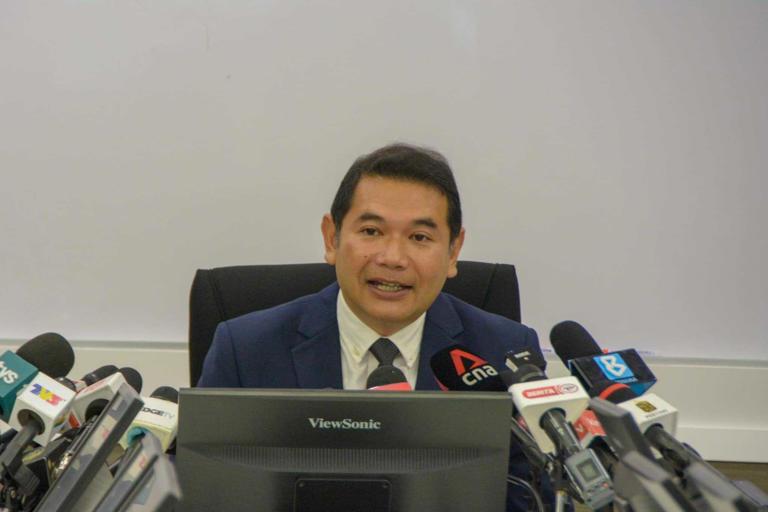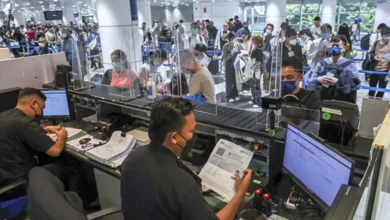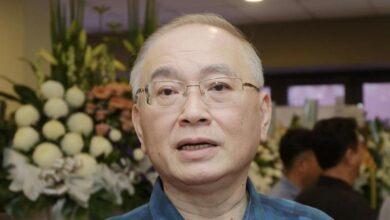Economist schools Rafizi after ‘avoid buying chicken’ comment ruffles feathers

Economist schools Rafizi after ‘avoid buying chicken’ comment ruffles feathers
An economist today offered Rafizi Ramli a draft of an alternative media statement amid the flurry of reactions sparked on social media by the minister’s suggestion for consumers to cut down on buying chicken in order to lower the prices.
Noor Azlan Ghazali of Universiti Kebangsaan Malaysia said Rafizi’s remarks were not very comprehensive as there were still questions to be clarified.
He summarised the hypothesis of the economy minister that with a higher elasticity of demand, price increases would lead to a reduction in demand, causing prices to taper down or at least moderate.
However, he said that two main questions remained, namely “what demand?” and “whose demand?”
In a Facebook post, he said Rafizi appeared to refer only to the sharing of analytical data without taking into account data from the statistics department on the Consumer Price Index (CPI), showing that 671 or 80% of the 841 items being monitored have already increased in price.
“This amount consists of three main components: food at home (16.9%), food outside the home (11.5%) and drinks (1.1%).
“The inflation rate for food at home reached 7.3% and the inflation rate for eating out rose higher to 9.6%, compared to the overall inflation rate which includes all expenditure categories, at 4%,” he said.
Noor Azlan, a former executive director at the Economic Action Council, the government’s top advisory body on economics, said that with Rafizi’s assumption of all things being equal, a drop in demand resulting from higher prices would result in a lowering of prices, while the demand that could be met would likewise be lower.
“This brings us to the second question: who’s demand?” he added.
“Who will bear the burden of reducing this demand? Who must sacrifice existing demand, the rich or the poor?”
Rafizi was reported as saying on Dec 23 that consumers appeared willing to pay the prices set by suppliers even though these continued to rise.
“By right, when the price of chicken increases, people should avoid buying chicken,” he said at a press conference.
He later said on Twitter that he had been referring to “the need to address the supply and demand side so that a more elastic consumer demand becomes a force to reckon with in influencing the price of goods”.
In his 11-paragraph draft media statement, Noor Azlan offered Rafizi a guide on how to explain the issue at hand.
“The government realises that we are currently facing pressure o prices, especially food prices and the cost of eating out,” the draft said.
“Even though the country’s inflation rate is at 4%, the inflation rate for these two categories of expenditure is higher at 7.3% and 9.6%.
“Apart from dealing with the aspects of production and supply, combating monopolistic actions and cartels that pressure consumers, and increasing the country’s food production, consumers also have a role to play in influencing and ensuring that the market price is fair for both consumers and producers.
“‘Consumer wisdom’ is the power of consumers to moderate price increases, especially those that are unreasonable.
“Consumers are able to influence market prices and traders to offer fair prices based on genuine supply and demand factors.
“The government meanwhile will increase the sharing of data and information to the people related to the price of good and services to enable consumers to make the best decisions.”
Why are prices up? Minister Rafizi says consumers also partial driver of inflation
Economist schools Rafizi after ‘avoid buying chicken’ comment ruffles feathers
DISYORKAN UNTUK ANDA :
- UMNO Kalah Dalam PRU 15 Tapi Pemilihan UMNO Menjadi Perhatian
- Kepentingan Telekom Di Menara KL Di Jual Murah Kepada Syarikat Bermasalah, Kroni Siapa?
- Pemilihan UMNO : Siapa calon proksi Muhyiddin dan Mahathir?
LAWATI LAMAN FACEBOOK KAMI :
SPRM Hadapi Zaman Sibuk, Lepas Siasat RM92.5 Bilion, Fail ‘Mark Up’ Projek YTL Di Sabah Menunggu




